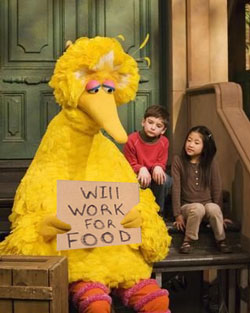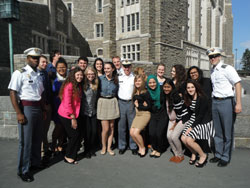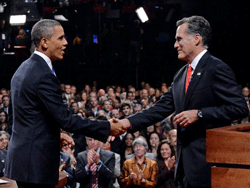President Donald Trump recently unveiled his new 2018 budget proposal last Thursday.
Titled “America First: A Budget Blueprint to Make America Great Again”, encourages hiring budgets spent on the Department of Defense, Homeland Security, and Veteran Affairs. However, what people are worried about is what is being sacrificed in order for these budget increases.
While 15 agencies will lose part of their funding, such as Environmental Protection Agency, the State Department, and Department of Education, others agencies would be eliminated in this proposal.
These agencies are mostly art related, for example, the Corporation of Public Broadcasting, the National Endowment of the Arts, the National Endowment for Humanities and the Institute of Museum and Library Services.
The world of public broadcasting is at stake in this new proposal, with many stations in rural and urban areas would lose access to PBS, NPR, and others, according to Paula Kerger, the president and CEO of PBS.
CPB supports the funding of those stations, and has long been a target of the republican party.
When Mitt Romney was the Republican presidential candidate in 2012, he told former PBS news anchor Jim Lehrer, “I like PBS. I love Big Bird. Actually, I like you too,” Romney told Lehrer. “But I’m not going keep on spending money on things to borrow money from China to pay for.”
However, Kerger reminded everyone in a statement that these stations have had to put up a fight before and they are willing to do so again.
She said, “We have always had support from both parties in Congress, and will again make clear what the public receives in return for federal funding for public broadcasting.”
Even though Trump’s proposal is just a blueprint and has a long battle ahead to get this approved, the importance of public broadcasting is an important one to keep alive.
Natorye Miller, a senior communication major, explains the impact that PBS programming had on her growing up. “It was a place to get some good television but to also learn something. Shows like Sesame Street and Arthur were predominate in my life that the thought of PBS not existing anymore makes me sad. Kids need this more than ever.”
PBS has been a private, nonprofit corporation that started off in 1969. One of the programs that PBS has focuses on throughout the years is the “Ready to Learn” program. With this, many of their shows are geared towards at-risk kids, with math-and literacy based programing to help them prepare for success at school.
Shows that are famously known, such as Sesame Street, The Electric Company, and Word Girl all derived from PBS.
Akintunde Obafemi, a senior physical therapy major, remembers learning a lot through PBS shows. “I remember I learned a couple thing I didn’t understand about math while watching Cyber Chase. It’s super important to keep shows like this alive.”
Although the first of its kind, Sesame Street, has recently moved to HBO, many re-runs are played later on onPBS.
Recently Sesame Street has tried to target more realistic at home situations and develop it into the story line of the show. They have created two different characters, Julia, an autistic muppet, and Alex, a muppet with a dad who is in jail.
“I absolutely think public radio still holds an important spot in media and society today. Something like NPR is in theory a place where the public turns for a different type of content. Extremely popular for some of their programs and podcasts from non-traditional sources. From a news perspective, you would think it’s a place that citizens can go to hear unbiased coverage even if that is hard to 100 percent accomplish. Have a long time friend and colleague who works for an NPR station and he had told me that public radio strives to be the voice of the voiceless,” said Matthew Harmon, specalist professor of communication.
In 2012, Jo Ellen Chatham, a co-chairman of the PBS SoCal board of trustees wrote an Op-Ed for LA Times, titled “Republicans for ‘Sesame Street.’” Here, Chatham explained that as a conservative Republican, she would fight to keep PBS alive.
She wrote, “PBS treats its audience as citizens, not consumers. Its value is proven: 123 million Americans watch PBS each month and, for the ninth consecutive year, polling by the nonpartisan research companies Harris Interactive and ORC Online Caravan found that PBS is rated as the most trustworthy among nationally known organizations [including Congress and the courts].”
IMAGE TAKEN from forgetthebox.com




